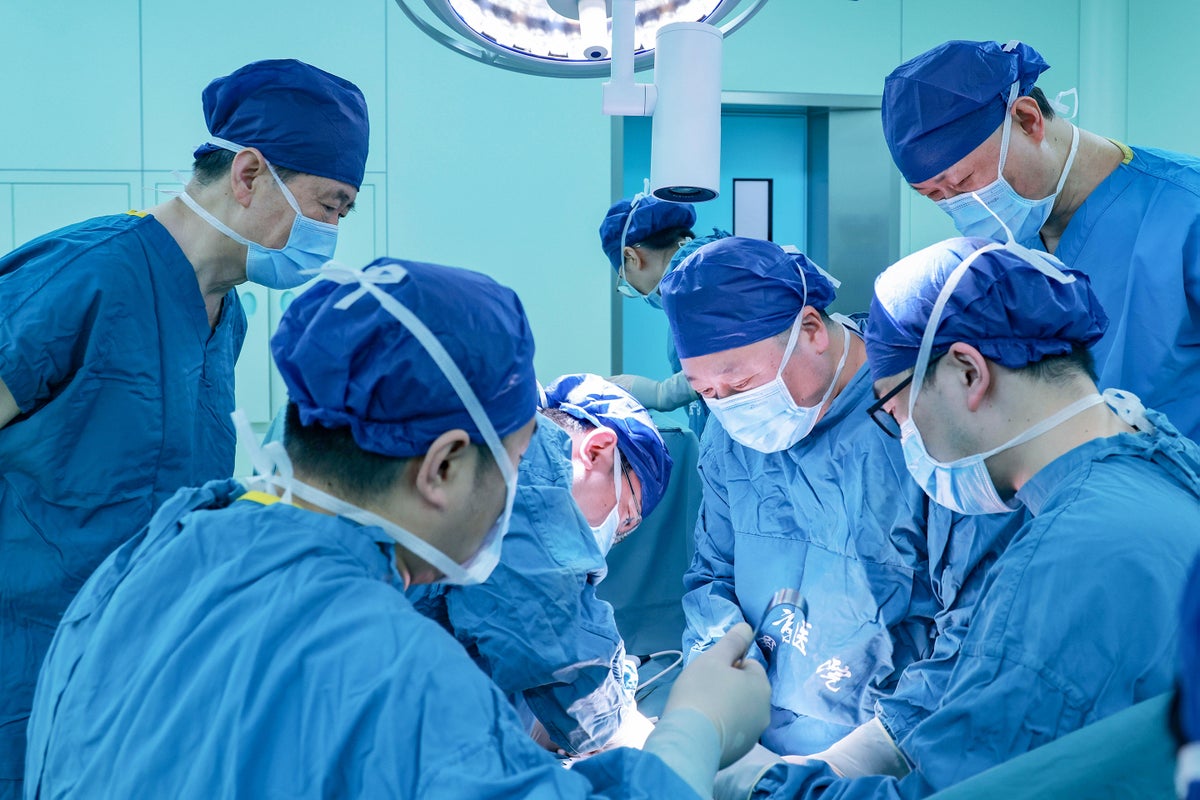
"Surgeons in China transplanted part of pig liver into a patient with an incurable cancerous tumor, and it functioned for more than a month By Humberto Basilio edited by Tanya Lewis In another procedure, a team led by Qin Weijun, a doctor at Xijing Hospital of the Air Force Medical University, performs a surgery to transplant a genetically modified pig kidney into a brain-dead recipient at the hospital in Xi'an, China on March 25, 2024."
"Chinese scientists have performed what is thought to be the first transplant of a genetically modified pig liver segment into a person with cancer. Surgeons reported that the transplanted section of the pig organ supported the patient's metabolic functions properly for 38 days, at which point it had to be removed because of complications. The patient lived another 133 days and died from gastrointestinal bleeding."
"Transplanting organs from other animals into humansknown as xenotransplantationhas made notable strides in recent years. The pig liver transplant demonstrates that xenogeneic organs can not only survive short term but also perform physiological functions in the complex environment of a living body, says Beicheng Sun, president of the First Affiliated Hospital of Anhui Medical University in China, who conducted the study with his colleagues"
Surgeons transplanted a genetically modified pig liver segment into a patient whose right-side liver tumor risked organ rupture and whose remaining left lobe was insufficient. The pig graft functioned as an auxiliary organ, supporting metabolic functions for 38 days before removal due to complications. The patient's native liver remained to allow regeneration while the xenogeneic graft provided temporary support. The patient survived an additional 133 days and ultimately died of gastrointestinal bleeding. The procedure demonstrates that pig-derived organs can survive short term and perform physiological functions in a human body, offering a potential bridge to recovery or to receiving a human donor organ.
Read at www.scientificamerican.com
Unable to calculate read time
Collection
[
|
...
]